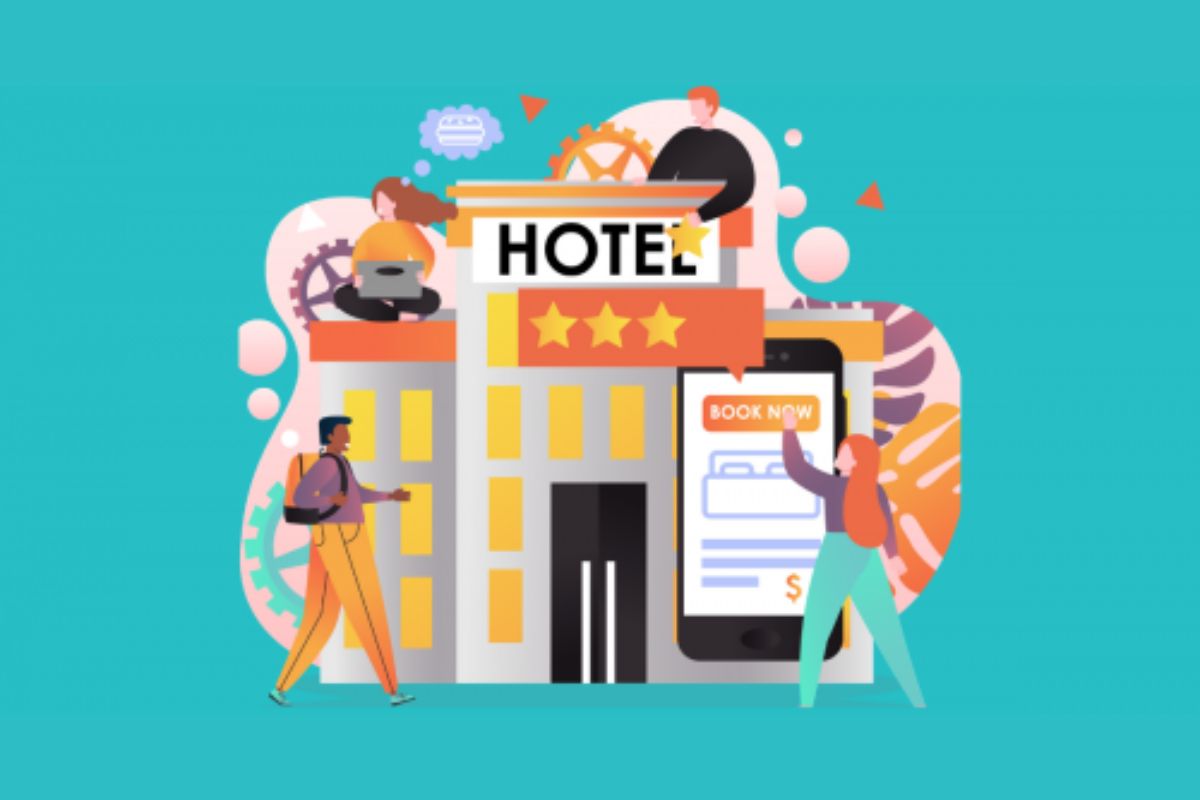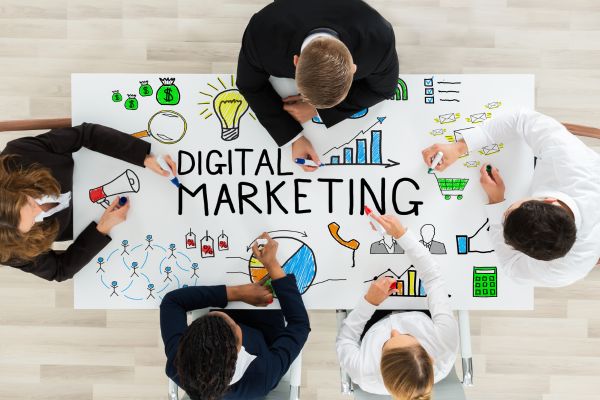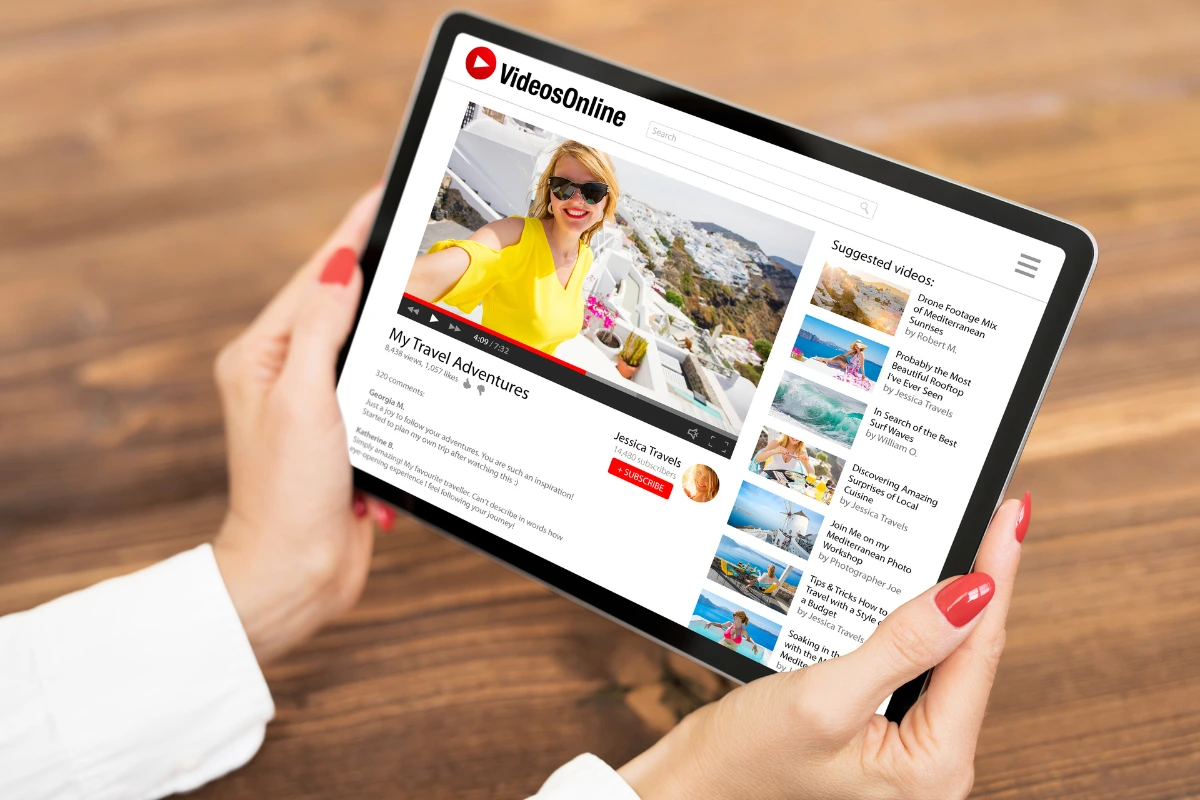Hotel & Resort Digital Marketing: The Ultimate Guide to Boosting Your Business

Simply providing luxury accommodations and world-class services isn’t enough to ensure success for hotels and resorts. With the internet becoming the primary tool for travellers to discover, compare, and book their next stay, digital marketing has emerged as the most important strategy for driving bookings and increasing visibility.
In fact, 81% of travellers research their accommodations online before making a booking, and 52% of these travellers say they are influenced by social media when making their decision. Additionally, a well-implemented digital marketing strategy can increase direct bookings by 40%, reducing your reliance on third-party platforms and improving your overall revenue.
Digital marketing for hotels and resorts isn’t just about having a website or posting on social media occasionally. It involves a strategic mix of tools, platforms, and techniques designed to capture the attention of potential guests at every stage of their journey – from the moment they start looking for a destination to the point when they book their stay.
Why is Digital Marketing Important for Hotels and Resorts?
The travel and hospitality industry has changed dramatically in the last few years. With the rise of online booking platforms, social media, and mobile technology, travellers no longer rely solely on travel agents or word of mouth to find a place to stay. Instead, they turn to the internet.
Here are some reasons why digital marketing is crucial for hotels and resorts:
- Reach a Global Audience: Digital marketing allows your hotel or resort to reach potential guests worldwide, 24/7. Your online presence isn’t limited to your physical location, making it easier for travellers from any part of the world to find and book your property.
- Cost-Effective: Compared to traditional marketing methods like TV ads or billboards, digital marketing is often more affordable and can provide better results. You can also track the effectiveness of your campaigns in real-time and adjust them as needed.
- Build Trust and Credibility: Potential guests are more likely to trust a hotel or resort with a strong online presence and positive reviews. By engaging with your audience online, responding to reviews, and showcasing real guest experiences, you build trust and encourage more bookings.
- Targeted Marketing: Digital marketing allows you to create highly targeted campaigns, ensuring that your messages reach the right people at the right time. Whether you want to attract honeymooners, business travellers, or families, you can tailor your marketing efforts accordingly.
- Direct Bookings: By investing in digital marketing, you can drive more traffic to your website, encouraging potential guests to book directly. This reduces your reliance on third-party booking platforms (which often take a commission) and increases your revenue.
Now that we understand the importance of digital marketing for hotels and resorts, let’s dive into some of the key strategies and tools that can help you get started.
Key Digital Marketing Strategies for Hotels and Resorts
1. Search Engine Optimisation (SEO)
SEO is the foundation of any successful digital marketing strategy. It involves optimising your website and its content to ensure it appears at the top of search engine results when potential guests search for terms like “best hotels in [your location]” or “luxury resorts in [your location].”
Here’s how to optimise your website for search engines:
- Keyword Research: Identify the keywords and phrases your target audience is searching for. These can include general terms like “luxury resort” or more specific phrases like “beachfront resort in Bali.” Use these keywords throughout your website, including in titles, headings, and meta descriptions.
- On-Page SEO: Ensure your website is user-friendly, mobile-optimised, and fast-loading. Search engines like Google prioritise websites that provide a good user experience. Make sure your content is well-structured and includes internal links to other pages on your site.
- Local SEO: If your hotel or resort caters to travellers searching for a specific location, local SEO is crucial. Make sure your business is listed on Google My Business, and include your address, phone number, and opening hours. Encourage guests to leave reviews, as these can improve your local SEO rankings.
- Content Creation: Regularly updating your website with fresh content, such as blog posts or guides, can improve your SEO. Write about topics relevant to your audience, such as travel tips, local attractions, or the best time to visit your resort.
2. Pay-Per-Click (PPC) Advertising
PPC advertising is a great way to get immediate visibility for your hotel or resort. With PPC, you pay each time someone clicks on your ad. Google Ads and Facebook Ads are two popular platforms for running PPC campaigns.
- Google Ads: Google Ads allows you to create search ads that appear at the top of Google’s search results when users search for specific keywords. For example, if someone searches “luxury hotels in Miami,” your ad can appear above the organic search results.
- Facebook Ads: Facebook’s advertising platform allows you to target specific demographics, interests, and behaviours. You can create visually appealing ads that showcase your property and encourage potential guests to visit your website or book a stay.
PPC ads are particularly effective because they target users who are already searching for hotels or resorts, meaning they’re likely further along in their decision-making process.
3. Social Media Marketing
Social media platforms like Facebook, Instagram, and YouTube are essential for hotels and resorts. They allow you to showcase your property visually, engage with potential guests, and build brand awareness.
Here’s how to make the most of social media:
- Visual Storytelling: Use high-quality images and videos to showcase your property. Share photos of your rooms, amenities, and nearby attractions. Instagram is particularly effective for this, as it’s a highly visual platform. Create a consistent aesthetic that aligns with your brand and attracts your target audience.
- User-Generated Content: Encourage guests to share their experiences by tagging your hotel or resort in their social media posts. Repost their content on your own page (with permission) to show authentic guest experiences. User-generated content is more trustworthy than traditional advertising and can boost credibility.
- Engagement: Respond to comments, messages, and reviews on your social media platforms. Engaging with your audience builds trust and encourages more bookings. It also shows potential guests that you care about their experience.
- Social Media Ads: Paid social media ads allow you to target specific demographics and interests. For example, if you run a family-friendly resort, you can create ads targeting parents interested in family vacations. Facebook and Instagram’s ad platforms allow you to create highly targeted campaigns that reach the right audience.
4. Email Marketing
Email marketing is one of the most cost-effective digital marketing strategies. It allows you to nurture relationships with potential guests, encourage repeat bookings, and promote special offers.
Here’s how to use email marketing effectively:
- Build an Email List: Encourage website visitors to sign up for your email newsletter by offering something valuable, such as a discount on their first booking or a free guide to local attractions. You can also collect email addresses during the booking process.
- Personalised Emails: Send personalised emails to subscribers based on their preferences and booking history. For example, if a guest has previously booked a family vacation at your resort, you can send them promotions for family-friendly packages.
- Automated Emails: Set up automated email campaigns that send follow-up emails after a guest has booked or stayed at your property. For example, you can send a thank-you email after their stay, along with a discount code for their next visit.
- Promote Special Offers: Use email marketing to promote seasonal discounts, package deals, or last-minute bookings. Emails with clear calls to action and visually appealing designs can drive more bookings.
5. Influencer Marketing
Influencer marketing involves partnering with social media influencers who have a large following and are trusted by their audience. These influencers can promote your hotel or resort to their followers, driving more awareness and bookings.
- Choose the Right Influencers: Look for influencers who align with your brand and have an audience that fits your target demographic. For example, if you run a luxury resort, partner with travel influencers who specialise in luxury travel.
- Offer Unique Experiences: Invite influencers to stay at your property for free in exchange for promotion. Make sure to offer them a unique experience that they can share with their audience. This could be anything from a private tour of your resort to a special dinner prepared by your chef.
- Track Results: Influencer marketing can be highly effective, but it’s important to track the results. Use tracking links or unique discount codes to measure how many bookings are generated through the influencer’s promotion.
6. Online Reviews and Reputation Management
Online reviews play a crucial role in the decision-making process for travellers. Positive reviews can boost your hotel’s credibility, while negative reviews can deter potential guests.
Here’s how to manage your online reputation:
- Encourage Reviews: After a guest checks out, send a follow-up email asking them to leave a review on platforms like TripAdvisor, Google Reviews, or Booking.com. Positive reviews can improve your ranking on these platforms and increase bookings.
- Respond to Reviews: Always respond to reviews, whether they’re positive or negative. Thank guests for their positive feedback, and address any issues raised in negative reviews. Responding professionally to negative reviews shows potential guests that you’re committed to providing excellent service.
- Monitor Review Sites: Regularly monitor review sites to see what guests are saying about your property. Use their feedback to improve your services and address any recurring issues.
7. Content Marketing
Content marketing involves creating and sharing valuable content that attracts and engages potential guests. This can include blog posts, videos, infographics, and more.
Here’s how to implement a content marketing strategy:
- Blogging: Write blog posts about topics that interest your target audience. For example, you can create travel guides, tips for visiting your destination, or behind-the-scenes looks at your resort. Blogging improves your SEO and positions your property as an expert in the industry.
- Video Content: Video content is highly engaging and can showcase your property in a dynamic way. Create videos that highlight your resort’s amenities, offer virtual tours of your rooms, or show guests enjoying activities at your property.
- Local Guides: Create detailed guides about the attractions and activities near your hotel or resort. For example, you can create a guide to the best beaches in your area or the top restaurants to visit. These guides can attract potential guests who are researching the destination.
8. Google Hotel Ads
Google Hotel Ads allow you to display your hotel’s availability, pricing, and reviews directly in Google search results. These ads appear when users search for hotels in a specific location, making it easier for potential guests to find and book your property.
Here’s how to get started with Google Hotel Ads:
- Set Up Your Feed: You’ll need to create a feed with your hotel’s information, including room availability, pricing, and photos. Google will then display this information to users searching for hotels in your location.
- Target Specific Audiences: Google Hotel Ads allow you to target users based on their location, travel dates, and booking preferences. This ensures that your ads are shown to people who are most likely to book a stay at your property.
- Track Results: Google Hotel Ads provide detailed analytics, so you can track the performance of your campaigns. Monitor metrics like click-through rates and conversions to see how many bookings are generated through your ads.
Conclusion
Digital marketing is essential for hotels and resorts looking to thrive in today’s competitive market. By implementing strategies like SEO, PPC advertising, social media marketing, and influencer partnerships, you can increase your online visibility, drive more bookings, and build a loyal customer base.
The key to success is consistency and engagement. Keep your audience informed, respond to their feedback, and showcase your property in the best possible light. With the right digital marketing strategy, your hotel or resort can stand out from the competition and attract guests from all over the world.
Calling all Marketers!
🔴 Are you tired of searching for the perfect job?
Whether you're into content writing, SEO, social media, graphic design, or video editing—full-time, freelance, remote, or onsite—we've got your back!
👉 We post over 30 job opportunities every single day. Yes, every day (all verified).
Join the most reliable and fastest-growing community out there! ❤️
And guess what? It’s FREE 🤑
✅ Join our WhatsApp Group (Click Here) and Telegram Channel (Click Here) today for instant updates.







